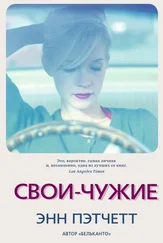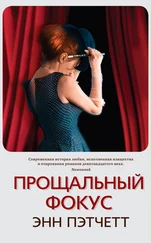Maeve stopped and gave me a hard look just before we got to the turnstile. She might have thought I was going to throw up, which wouldn’t have been a bad guess. “Did you eat too much?”
I shook my head. “We went to Brooklyn.” There must have been some better way to tell her this but the morning was more than I knew how to shape into words.
“Today?”
There was a black metal gate in front of us, and on the other side of the gate was the platform for the train. The train came up and the doors opened and the people got off and got on but Maeve and I just stood there. Other people rushed past, trying to get through the turnstile in time. “We left too early. I think he and Andrea must have had a fight because she was going to come with us, Andrea and the girls, and then Dad came down alone and he was in a huge hurry to leave.” I had started to cry when there was nothing to cry about. I was long past the age anyway. Maeve took me to a wooden bench and we sat there together and she fished a Kleenex out of her purse and handed it to me. She had her hand on my knee.
Once I’d told her the whole of the story I could see there wasn’t much to it, but I couldn’t stop thinking that all of the people who had lived in that apartment were dead now, except for the sister who went to Canada and our mother, and they could easily be dead too.
Maeve was very close. She’d eaten a peppermint from a bowl by the door in the restaurant. We both had. Her eyes weren’t blue like mine. They were much darker, almost navy. “Could you find the street again?”
“It’s Fourteenth, but I couldn’t tell you how to get there.”
“But you remember the coffee shop and the shoe repair, so we could find it.” Maeve went to the man in the booth who sold tokens and came back with a map. She found Fourteenth Avenue and then figured out the train, then she gave the map back and gave me a token.
Brooklyn is a big place, bigger than Manhattan, and a person wouldn’t think that a twelve-year-old boy who had never been there before could possibly find his way back to a single apartment building he’d seen for five minutes, but I had Maeve with me. When we got off the train she asked directions to Bob’s Cup and Saucer, and once we were there I knew how to find it: a turn at the corner, a turn at the light. I showed her the bars our grandfather had put on the windows as a defense against knuckleheads, and for a while we stood there, our backs against the bricks. She asked me to tell her the names of the uncles and the aunts. I could remember Loretta and Buddy and James but not the other two. She said I shouldn’t worry about it. When the rain got harder we walked back to Bob’s. The waitress laughed when we asked for a cruller. She said they were gone by eight o’clock every morning. That was fine with us, seeing as how we weren’t hungry. Maeve had a cup of coffee and I had hot chocolate. We stayed until we were warm and halfway dry.
“I can’t believe he showed you where she lived,” Maeve said. “All the years I asked him about her, about her family, about where she had gone, he’d never tell me anything.”
“Because he thought it would kill you.” I didn’t like being in the position of defending my father to my sister but that was the case. Our mother’s leaving had made Maeve sick.
“That’s ridiculous. People don’t die from information. He just didn’t want to talk to me. One time when I was in high school I told him I was going to India to try to find her and you know what he said?”
I shook my head, stunned by the horrible thought of Maeve in India, both of them gone.
“He told me I needed to think of her as dead, that she probably was dead by now.”
And still, as terrible as it was, I understood. “He didn’t want you to go.”
“He said, ‘There are almost 450 million people in India now. Good luck with that.’ ”
The waitress came back and held up her pot of coffee but Maeve declined.
I thought about the bars on the windows of the apartment. I thought of all the knuckleheads in the world. “Do you know why she left?”
Maeve finished what was in her cup. “All I know for sure was that she hated the house.”
“The Dutch House?”
“Couldn’t stand it.”
“She didn’t say that.”
“Oh, she did. She made it known every day. The only room she’d ever sit in was the kitchen. Whenever Fluffy would ask her a question, she’d say, ‘Do whatever you think best. It’s your house.’ She was always saying it was Fluffy’s house. It drove Dad to distraction, I remember that. She told me once if it were up to her she’d give the place to the nuns, let them turn it into an orphanage or an old folks’ home. Then she said the nuns and the orphans and the old folks would probably be too embarrassed to live there.”
I tried to imagine such a thing. Hate the dining-room ceiling, sure, but the entire house? There was no better house. “Maybe you misunderstood her.”
“She said it more than once.”
“Then she was crazy,” I said, but as soon as I said it I was sorry.
Maeve shook her head. “She wasn’t crazy.”
When we got back to Manhattan, Maeve took me to a men’s store and bought me extra underwear, a new shirt, and a pair of pajamas, then she got me a toothbrush at the drugstore next door. That night we went to the Paris Theater and saw Mon Uncle . Maeve said she was in love with Jacques Tati. I was nervous about seeing a movie with subtitles but it turned out that nobody really said anything. After it was finished, we stopped for ice cream then went back to Barnard. Boys of every stripe were expressly forbidden to go past the dorm lobby, but Maeve just explained the situation to the girl at the desk, another friend of hers, and took me upstairs. Leslie, her roommate, had gone home for Easter break and so I slept in her bed. The room was so small we could have easily reached across the empty space and touched fingers. I slept in Maeve’s room all the time when I was young, and I had forgotten how nice it was to wake up in the middle of the night and hear the steadiness of her breathing.
I ended up staying in New York for all of Friday and most of Saturday, and if Maeve ever called the house to let anyone know our plans, I wasn’t there to witness it. She said she’d been studying too much to do all the tourist things she’d meant to, and so we went to the Museum of Natural History and the zoo in Central Park. We went to the top of the Empire State Building in spite of the rain and all we could see were the deep wet clouds we were standing inside. She walked me around the Columbia University campus and told me that this was where I should go to college. We went to Good Friday Mass at the Church of Notre Dame and the beauty of the building held my attention through nearly half of the interminable service. Maeve finally had to excuse herself and go out to the vestibule on the side of the church to give herself some insulin. She told me later that people probably thought she was a junkie in a sweater set. Late on Holy Saturday she took me to Penn Station. She said Dad would want me home for Easter, and anyway, we both had to go back to school on Monday. She bought me a ticket, promising that she would call the house and tell Sandy when to meet me, making me promise I would call her as soon as I got home. Maeve gave the porter a tip and asked him to seat me next to the safest-looking person on the train, but as it turned out there were only a handful of us going to Philadelphia in the late afternoon of Holy Saturday and I had a whole row to myself. Maeve had bought me the book about Julius Caesar I had begged her for in Brentano’s but I wound up keeping it on my lap and looking out the window the entire time. The train was past Newark before I realized I’d forgotten to show her the apartment building where Dad had grown up, and that she had forgotten to ask.
Читать дальше
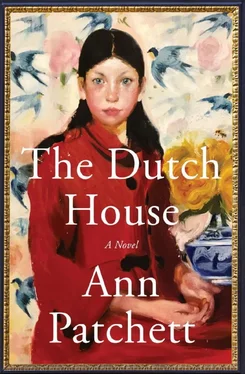
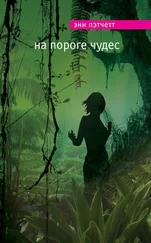

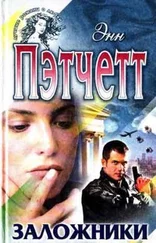
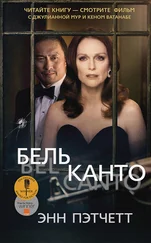
![Энн Пэтчетт - Прощальный фокус [litres]](/books/402782/enn-petchett-prochalnyj-fokus-litres-thumb.webp)
